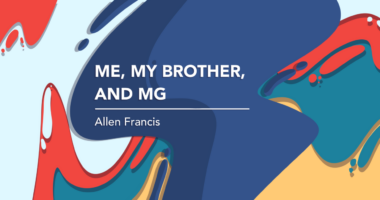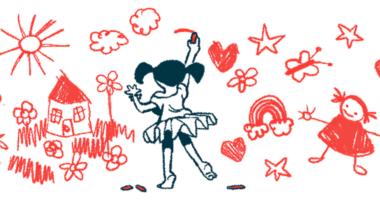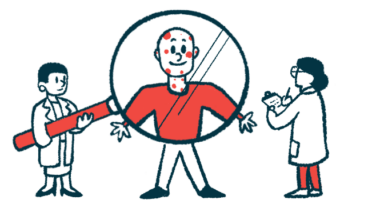Soliris now approved for children, adolescents with gMG in Japan
Approval is 1st in nation for treating myasthenia gravis in children

Soliris (eculizumab), already approved in Japan for adults with generalized myasthenia gravis (gMG), has now become the first therapy to win approval in the Asian nation for treating children and adolescents with this type of the autoimmune condition.
The expanded use was granted by the Japanese Ministry of Health, Labour and Welfare, and specifically covers the use of Soliris in pediatric patients who are positive for antibodies against the acetylcholine receptor (AChR) — the most common type of MG-causing antibody.
Children and teens given this myasthenia gravis therapy must have symptoms that are difficult to control with standard treatments, namely intravenous immunoglobulin (IVIG) or plasmapheresis.
“Soliris has the potential to improve outcomes and quality of life for paediatric patients and their families, and we take pride in delivering this first and only targeted therapy to the paediatric gMG community in Japan,” Marc Dunoyer, CEO of Alexion, said in a company press release announcing the expanded approval. Soliris was originally developed by Alexion, which now is part of AstraZeneca.
Decision in Japan follows approval in EU for children with myasthenia gravis
MG is caused by an autoimmune attack that interferes with the communication between nerve and muscle cells, resulting in symptoms like muscle weakness and fatigue.
Soliris works to block the activity of the complement cascade, a part of the immune system that plays a central role in this autoimmune attack. The therapy, which is administered by an intravenous or into-the-vein infusion every other week after an initial loading period of five doses, specifically binds to a complement protein called C5. In so doing, it effectively prevents complement activation.
In Japan, Soliris has been approved since late 2017 for adults with hard-to-treat, AChR-positive gMG. The therapy also is authorized for adults with gMG in the U.S. and China. In both countries, Soliris also is approved for patients with other disorders.
In the European Union, Soliris’ approval also was recently extended — specifically to cover patients as young as 6. Applications to extend the treatment’s approvals elsewhere for children are in progress, according to AstraZeneca.
The extensions of Soliris’ approvals in Japan and the EU were based on data from a Phase 3 clinical trial (NCT03759366) that had been launched in 2018. In that study, Soliris was used to treat 11 children with AChR-positive gMG, ages 6 through 17, for about six months.
Results from the study showed that the safety profile of Soliris in young patients was consistent with previous observations in adult patients. Common side effects of the medication included headache and the common cold, and most were mild or moderate in severity.
[This] expanded approval of Soliris in Japan demonstrates the impact of C5 complement inhibition in treating gMG, offering paediatric patients a targeted option with the potential to preserve muscle function and reduce disease severity.
Trial data also indicated that Soliris helped to ease symptoms for these young gMG patients: average scores on the Quantitative MG (QMG) scale, a physician-rated measure of MG symptom severity, improved by 5.8 points after six months of treatment.
“gMG is challenging to manage in paediatric patients, as current therapies available to this population, such as immunosuppressants, may not offer adequate control as the disease progresses,” said Keiko Ishigaki, MD, PhD, of Tokyo Women’s Medical University.
This “expanded approval of Soliris in Japan demonstrates the impact of C5 complement inhibition in treating gMG, offering paediatric patients a targeted option with the potential to preserve muscle function and reduce disease severity,” Ishigaki said.







